Fitness Tracker - Top Picks for Every Budget & Fitness Goal
Discover the best fitness trackers to monitor your health, track workouts, and stay active—all while syncing seamlessly with your lifestyle and goals.
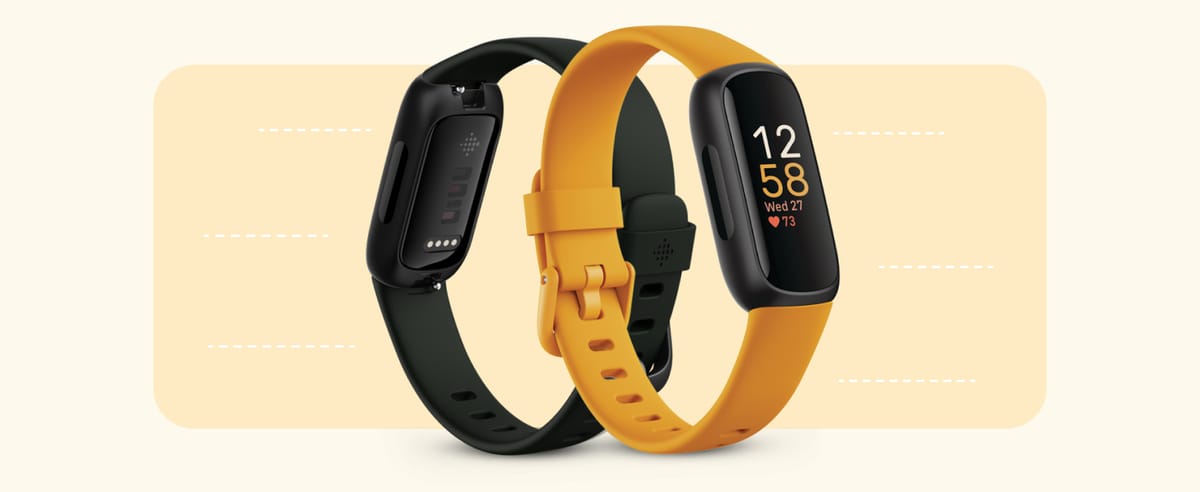
Fitness trackers have evolved from simple step counters to sophisticated health and activity monitors that can track everything from your heart rate to sleep quality and stress levels. With the market flooded with options ranging from budget-friendly bands to premium smartwatches, finding the right fitness tracker for your needs can be overwhelming. We've tested and reviewed the top contenders to bring you this comprehensive guide to the best fitness trackers available in 2025, with special focus on models that deliver exceptional value and performance.
How to Choose the Right Fitness Tracker
Purpose and Activity Type
Before purchasing a fitness tracker, consider your primary fitness activities and goals. Different trackers excel at monitoring specific activities:
- Running enthusiasts will benefit from devices with built-in GPS and advanced metrics like VO2 max and recovery insights
- Swimmers should prioritize water resistance ratings of at least 5 ATM
- General fitness tracking requires reliable step counting, heart rate monitoring, and sleep analysis
- More serious athletes might need specialized sports modes and detailed performance metrics
The best tracker for you aligns with your specific fitness routines and health monitoring needs.
Essential Features to Consider
When evaluating fitness trackers, these key features determine both functionality and value:
Display and Design
Modern fitness trackers typically offer either AMOLED or LCDs. AMOLED screens provide more vibrant colors and better visibility in sunlight, but may drain battery faster. Consider screen size, touchscreen functionality, and whether you prefer a slim band or watch-style design13.
Battery Life
Battery performance ranges dramatically from 2-3 days for feature-packed smartwatches to 18+ days for more streamlined trackers. Consider how frequently you're willing to charge your device, especially if you plan to wear it continuously for sleep tracking.
Health Monitoring Capabilities
Most contemporary fitness trackers offer:
- Continuous heart rate monitoring
- Sleep tracking with sleep stage analysis
- Stress level assessment
- Blood oxygen (SpO2) monitoring
- Activity detection and exercise tracking
Premium models may add ECG capabilities, more detailed sleep metrics, or additional health insights.
Smart Features and Connectivity
Many fitness trackers now include smartphone notifications, music controls, contactless payments, and app integrations. Consider which smart features matter most in your daily routine.
Price and Value
Fitness trackers range from under $50 to $300+. Higher prices typically correlate with more advanced features, premium materials, and longer support cycles, but excellent options exist at every price point.
Top Fitness Trackers of 2025
Fitbit Charge 6 - Best Overall Fitness Tracker
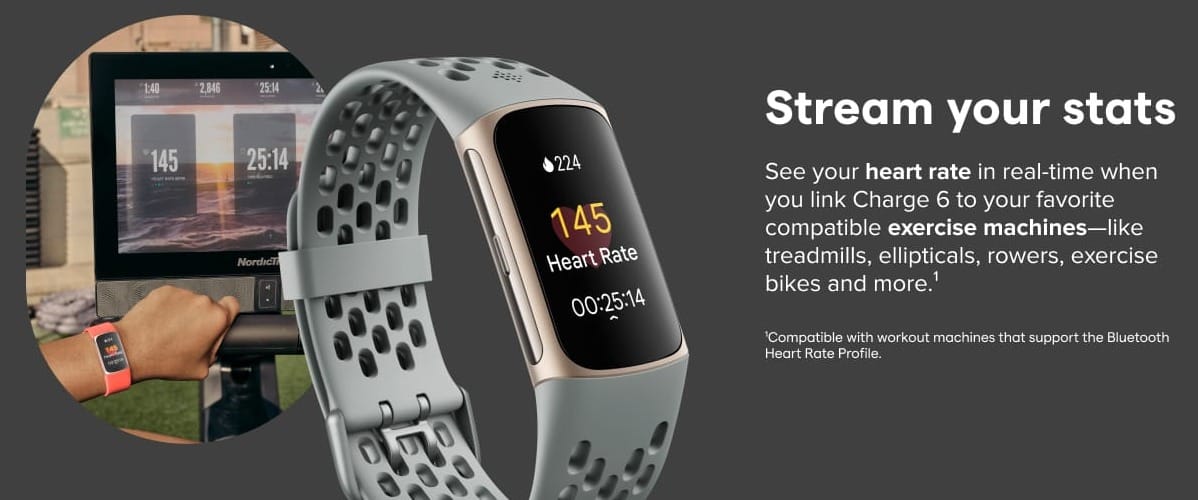
The Fitbit Charge 6 earns our top recommendation by striking an ideal balance between comprehensive features, accuracy, and value.
Key Features:
- Fitbit's most accurate heart rate tracking to date (60% more accurate during vigorous exercise)
- 40+ exercise modes with automatic activity detection
- Built-in GPS for phone-free route tracking
- ECG app for heart rhythm assessment
- EDA scans for stress monitoring
- Google app integration, including Google Maps and Google Wallet
- Up to 7 days of battery life
Pros:
- Exceptional accuracy for health metrics
- Comprehensive fitness tracking capabilities
- Useful smart features like contactless payments
- Connects to compatible gym equipment to display heart rate
- Excellent companion app with detailed health insights
Cons:
- Some premium features require a Fitbit Premium subscription
- No Spotify controls
- No third-party app store
The Charge 6 represents Fitbit's most refined tracker, offering nearly all the health monitoring capabilities of higher-priced smartwatches in a comfortable, slim form factor that doesn't overwhelm smaller wrists.
Fitbit Inspire 3 - Best Budget-Friendly Tracker
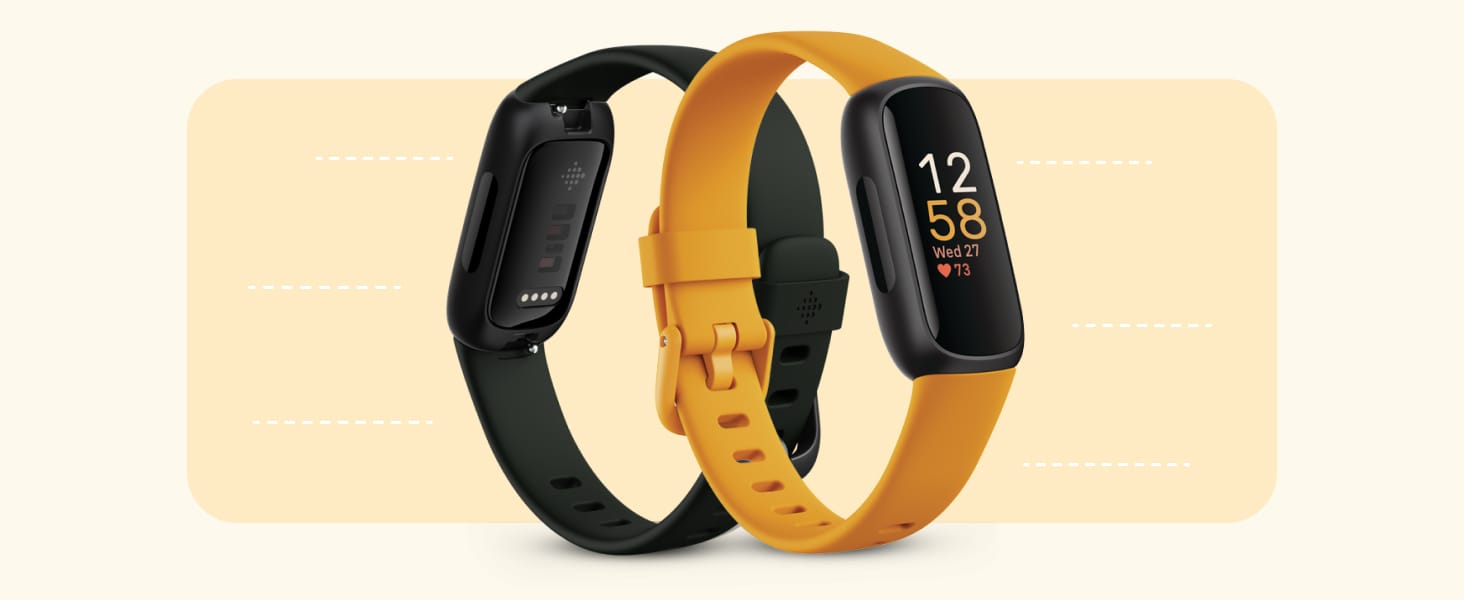
For those seeking essential fitness tracking without breaking the bank, the Fitbit Inspire 3 delivers core functionality in a lightweight, affordable package.
Key Features:
- Bright, colorful AMOLED display
- Continuous heart rate monitoring
- Detailed sleep tracking with sleep stage analysis
- 20+ exercise modes
- Up to 10 days of battery life
- Water resistant for swimming
Pros:
- Exceptional battery longevity
- Comfortable for 24/7 wear
- Accurate step and sleep tracking
- Vibrant display visible in sunlight
- Access to Fitbit's excellent app ecosystem
Cons:
- No built-in GPS (relies on connected GPS from phone)
- Smaller screen than watch-style trackers
- Limited smart features compared to premium models
Priced at around $79.95, the Inspire 3 "nails the basics" of fitness tracking while providing the reliability and polished experience of the Fitbit ecosystem. It's an ideal starter tracker or option for those who prefer a minimalist device.
Amazfit Band 7 - Best Ultra-Budget Tracker
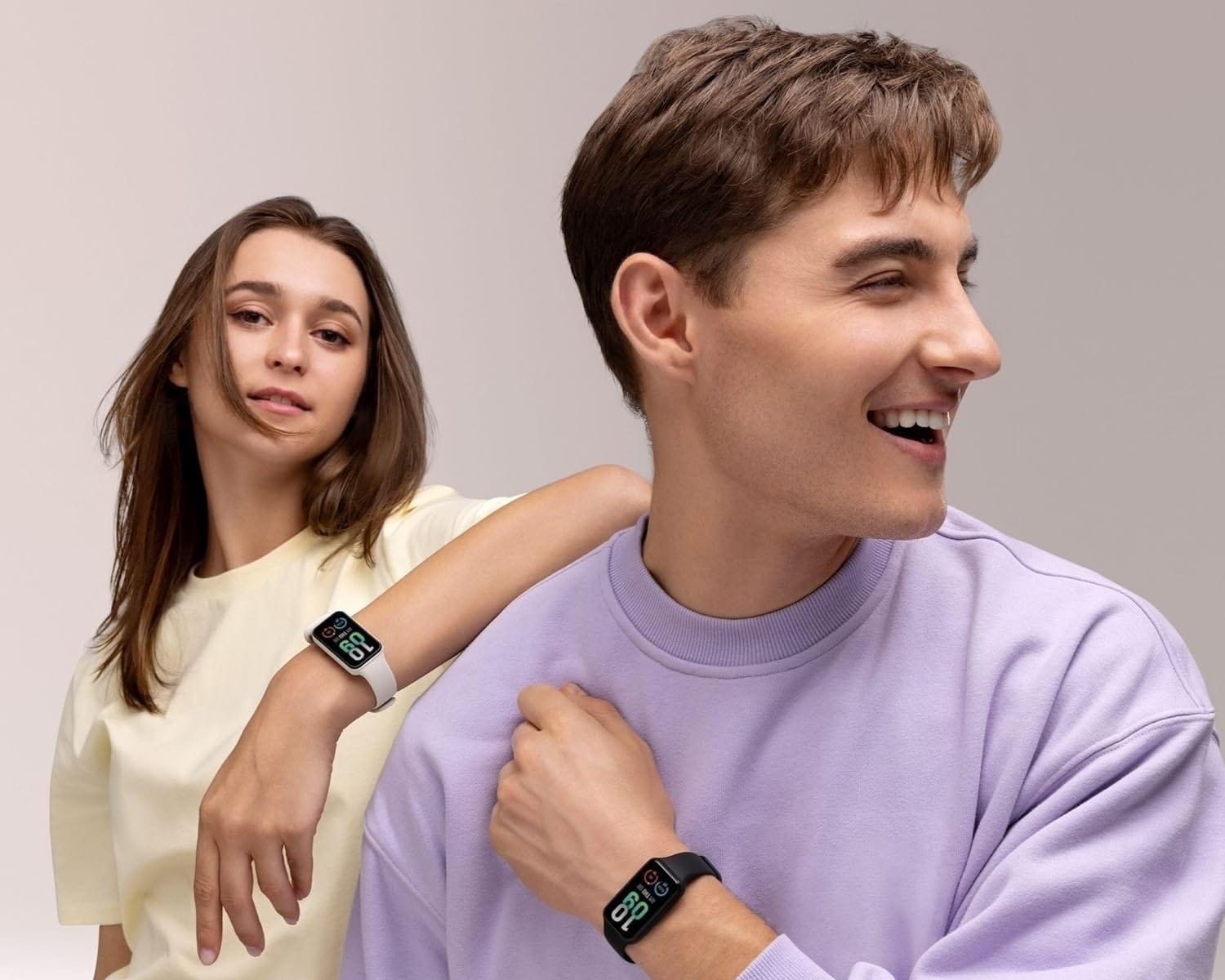
The Amazfit Band 7 disrupts the budget category by offering premium features and impressive battery life at a remarkably affordable price point.
Key Features:
- 1.47" large HD AMOLED display (112% larger than previous generation)
- 120 built-in sports modes with automatic detection for 4 activities
- 24-hour health monitoring (heart rate, blood oxygen, stress)
- Up to 18 days of battery life
- 5 ATM water resistance
- Amazon Alexa built-in
Pros:
- Exceptional value under $50
- Market-leading battery performance
- Large, easy-to-read display
- Comprehensive health tracking features
- Lightweight and comfortable design
Cons:
- Less refined software experience than Fitbit
- Limited third-party app support
- Health metrics may be less accurate than premium brands
For under $50, the Amazfit Band 7 delivers features typically found in trackers costing twice as much, making it the clear value winner for budget-conscious consumers who don't want to sacrifice functionality.
Garmin Forerunner 265 - Best for Serious Runners
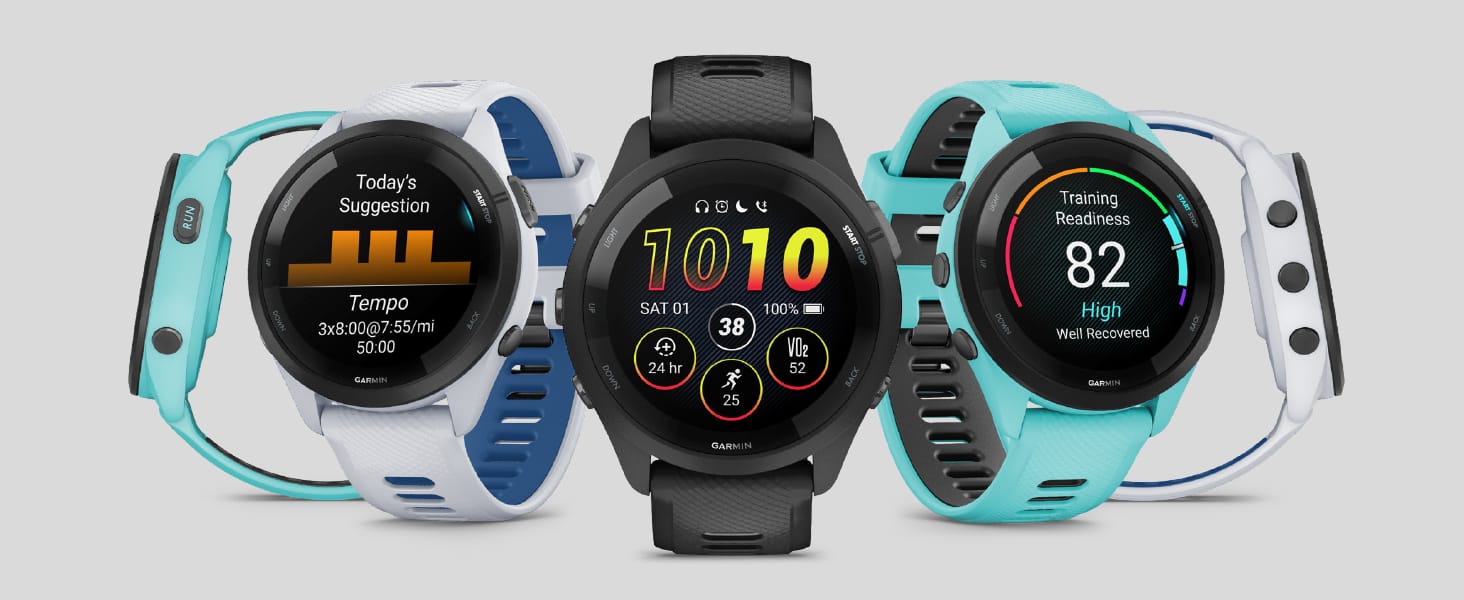
The Garmin Forerunner 265 represents the gold standard for dedicated runners seeking detailed performance metrics and training guidance.
Key Features:
- Vibrant AMOLED touchscreen with traditional button controls
- Multi-band GNSS for superior GPS accuracy
- Advanced running metrics (running power, ground contact time, stride length)
- Training readiness score based on sleep, training load, and HRV
- Up to 13 days of battery life in smartwatch mode
- Ability to download music from streaming services
- Incident detection for safety
Pros:
- Exceptional accuracy for pace and distance tracking
- Comprehensive running dynamics analytics
- Adaptive training suggestions based on performance
- Long battery life even with GPS usage
- Robust build quality and water resistance
Cons:
- Premium price point
- Learning curve for advanced features
- Larger size than basic fitness bands
The Forerunner 265 stands out as the premium choice for dedicated runners who want granular insights into their training effectiveness and recovery status. Its ability to suggest workouts based on your current fitness state makes it a true training partner rather than just a tracker.
Apple Watch Series 10 – Best Premium Smartwatch Fitness Tracker

The Apple Watch Series 10 sets a new benchmark in the smartwatch fitness tracker category, blending Apple’s most advanced display, health sensors, and smart features in a sleek, ultra-thin design.
Key Features:
- Largest and most advanced Apple Watch display yet, with a new wide-angle OLED that’s 40% brighter at an angle, available in 42mm and 46mm sizes.
- Thinnest Apple Watch ever at just 9.7mm, with a re-engineered Digital Crown, speaker, and antenna for a slimmer profile.
- Always-on display now shows a ticking second hand (1Hz refresh), improving at-a-glance readability.
- New case finishes, including a striking Jet Black aluminium and polished titanium options, with up to 75% more screen area than Series 3 and 9% more than Series 7–9.
- S10 SiP with 64-bit dual-core processor and 4-core Neural Engine for faster performance and advanced on-device Siri processing.
- Comprehensive health suite: ECG, blood oxygen, heart rate, sleep tracking, new sleep apnea detection, and monthly sleep analysis reports.
- Depth gauge (up to 6m for snorkeling), temperature sensor for swimming, and new Tides app for global tidal data.
- Fast charging: 80% charge in 30 minutes, with up to 18 hours battery life in normal use and up to 36 hours in Low Power Mode.
- New voice isolation for clearer calls, automatic background noise removal, and speaker media playback.
- WatchOS 11 brings sports training load, overnight sleep trending, and new customizable watch faces.
Pros:
- Sleek, ultra-thin and lightweight design for all-day comfort.
- Monumental, bright display with excellent readability and more data at a glance.
- Comprehensive health and safety features, including sleep apnea notifications.
- Fastest charging Apple Watch to date.
- Premium build quality and new color options.
Cons:
- Battery life remains at 18 hours in standard mode, requiring daily charging for most users.
- Premium pricing, starting at $399 for 42mm and $429 for 46mm (GPS), with higher prices for cellular and titanium models.
- Some advanced features require pairing with an iPhone and may not be fully accessible to Android users.
The Apple Watch Series 10 is the ultimate choice for those who want a premium smartwatch that doubles as a powerful fitness tracker. Its unrivalled display, robust health monitoring, and seamless integration with the Apple ecosystem make it the best all-around option for iPhone users seeking both style and substance in their wearable
Frequently Asked Questions
Q: How accurate are fitness trackers for measuring steps, calories, and heart rate?
Answer: Fitness tracker accuracy varies by device, model, and specific metric being measured. Generally, step counting accuracy ranges from 90-95% in most quality trackers when worn properly on the wrist. Heart rate monitoring has improved significantly in recent generations, with premium devices like the Fitbit Charge 6 claiming up to 60% better accuracy during vigorous activities compared to previous models.
Calorie burn estimates remain the least accurate metric, typically using algorithms based on movement, heart rate, and user-provided data like age, weight, and height. For most everyday users, the relative changes in metrics over time provide valuable fitness insights, even if absolute values have some margin of error.
Q: Do I need to pay for a subscription to use a fitness tracker?
Answer: While most fitness trackers provide their core functionality without requiring a subscription, many brands now offer premium subscription services that unlock additional insights and features:
- Fitbit Premium ($9.99/month): Provides detailed sleep analysis, guided programs, wellness reports, and more in-depth metrics
- Garmin Connect: Offers all features free without a subscription
- Amazfit/Zepp: Provides core features free, with occasional premium features
The good news is that all the trackers in our list deliver their essential functions without requiring additional subscription fees, though Fitbit users may find some advanced metrics locked behind the Premium paywall.
Q: How long do fitness tracker batteries typically last?
Answer: Battery life varies dramatically based on device features, display type, usage patterns, and model:
- Basic fitness bands (like Amazfit Band 7): 10-18 days with typical use
- Mid-range trackers (like Fitbit Inspire 3): 7-10 days with typical use
- Advanced trackers with GPS (like Fitbit Charge 6): 5-7 days with moderate use
- Full-featured smartwatches: 1-3 days with typical use
Using power-hungry features like GPS tracking, always-on displays, and maximum brightness settings will significantly reduce these estimates. Most manufacturers' battery life claims assume default settings without continuous GPS usage.
Q: Are fitness trackers waterproof for swimming?
Answer: Most modern fitness trackers offer some level of water resistance, but swimming capability varies by model:
- 3 ATM: Splash-resistant, not suitable for swimming
- 5 ATM: Suitable for swimming in pools (most fitness trackers today)
- 10 ATM: Suitable for open water swimming and snorkelling
All five trackers on our list offer at least 5 ATM water resistance, making them suitable for swimming and tracking pool workouts. The Amazfit Band 7 and Fitbit Inspire 3 offer dedicated swim tracking features despite their budget-friendly prices.
Q: What's the difference between a fitness tracker and a smartwatch?
Answer: The line between fitness trackers and smartwatches continues to blur, but key distinctions remain:
Fitness Trackers typically:
- Prioritize fitness and health tracking features
- Offer longer battery life (often 7+ days)
- Have simpler, more focused interfaces
- Come in smaller, lighter form factors
- Cost less ($50-$200 range)
Smartwatches typically:
- Offer more robust communication features
- Include more third-party apps
- Feature larger, more interactive displays
- Have more powerful processors and capabilities
- Cost more ($200-$800+ range)
Devices like the Fitbit Charge 6 represent the high end of fitness trackers with some smartwatch features, while budget smartwatches sometimes prioritize fitness functions similar to dedicated trackers.
Conclusion: Finding Your Perfect Fitness Companion
The fitness tracker landscape in 2025 offers compelling options at every price point, with remarkable technological advancements even in budget models. For most users, the Fitbit Charge 6 represents the ideal balance of features, accuracy, and value, earning its place as our top overall recommendation. Budget-conscious shoppers will find the Fitbit Inspire 3 or the even more affordable Amazfit Band 7 provide excellent core tracking capabilities without breaking the bank.
Dedicated runners should invest in the purpose-built Garmin Forerunner 265 for its unmatched training insights, while those preferring a smartwatch aesthetic without the typical battery compromises will appreciate the Amazfit Bip 5's approach.
When selecting your fitness tracker, prioritize the features that align with your specific fitness goals and daily habits. The most advanced tracker won't improve your health if uncomfortable design or inconvenient charging requirements mean you rarely wear it. The best fitness tracker is ultimately the one that seamlessly integrates into your lifestyle, providing meaningful insights that inspire positive changes to your health and fitness journey.
